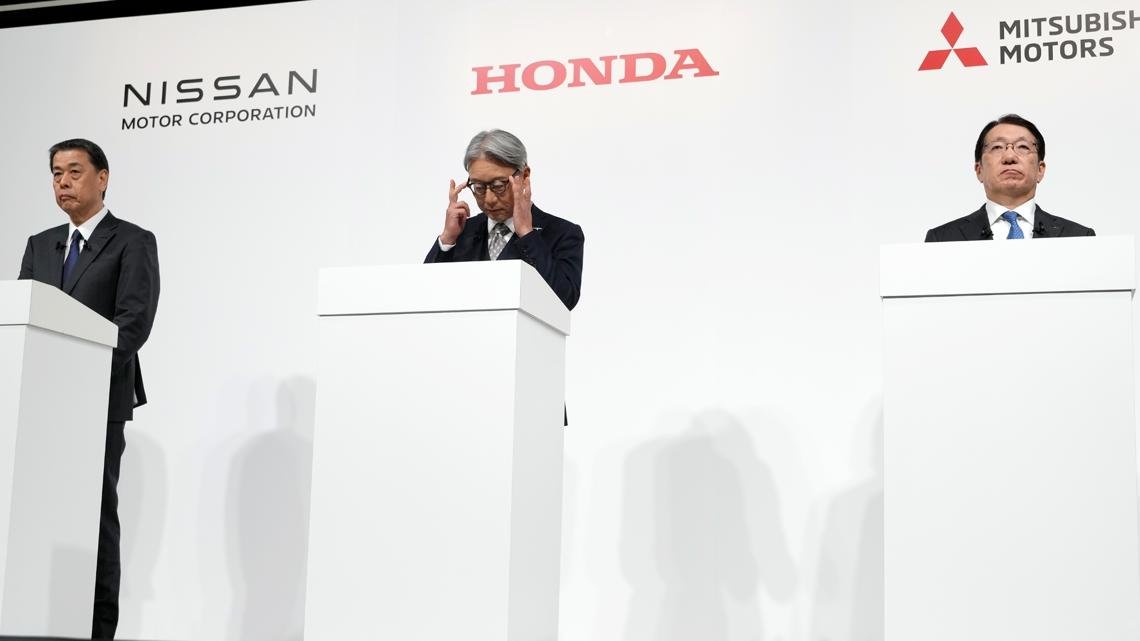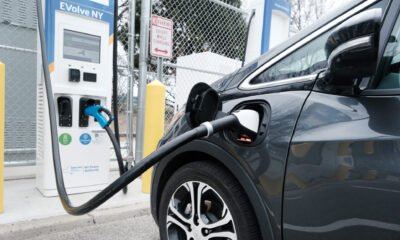Business
Nissan and Honda Join Forces to Form the World’s Third-Largest Automaker

Japanese automakers Honda and Nissan are exploring a merger that could create the world’s third-largest automotive manufacturer by sales, as they face increasing competition from Chinese manufacturers and Tesla. The two companies have signed a memorandum of understanding and invited Mitsubishi Motors to join the discussions.
Their goal is to unify operations under a joint holding company, with Honda president Toshihiro Mibe leading the initial management phase. He expressed hopes for a formal agreement by June, aiming to finalize the merger and list on the Tokyo Stock Exchange by August 2026.
No financial specifics were disclosed, and Mibe acknowledged that discussions are at an early stage, noting that the possibility of the merger not proceeding exists.
Japanese automotive firms have struggled in the electric vehicle sector, lagging behind competitors. A successful merger could yield a combined market capitalization exceeding $50 billion, allowing them to better compete with giants like Toyota and Volkswagen.
While the merger talks emerged recently, they followed reports about Foxconn’s interest in acquiring shares from Nissan’s alliance partner, Renault SA. However, Nissan’s CEO Makoto Uchida clarified that there has been no direct contact regarding this matter.
Even with a merger, Toyota would maintain its position as Japan’s leading automaker, having produced 11.5 million vehicles in 2023. The combined output of Honda, Nissan, and Mitsubishi would reach approximately 8 million vehicles, significantly bolstering their competitive stance.
Recent strategies include sharing components and researching software for electric vehicles and autonomous technologies—a response to rapidly changing market dynamics.
Nissan faces challenges stemming from financial issues that began with the high-profile arrest of former chairman Carlos Ghosn in 2018. On the merger, Ghosn described it as a “desperate move.”
Industry experts highlight potential benefits for Honda, such as gaining access to Nissan’s robust truck and battery capabilities. However, Nissan has recently announced job cuts amounting to 9,000 positions, citing the need for greater efficiency amidst declining profitability.
Uchida asserted that successful integration could deliver greater value to customers and enhance competitiveness. Meanwhile, Fitch Ratings has downgraded Nissan’s credit outlook, reflecting concerns over its profitability, although the company retains a solid cash position.
Following the merger news, Nissan’s shares saw a 1.6% increase, with a more significant rise of over 20% occurring after initial reports. Honda’s shares reported a 3.8% boost, despite a nearly 20% decline in net profit attributed to sluggish sales in China.
As the automotive landscape shifts, Cabinet Secretary Yoshimasa Hayashi emphasized the necessity for Japanese companies to adapt to emerging competitiveness in storage batteries and software technologies to thrive in the global market.


















